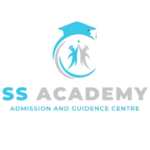Open schooling is an innovative educational system designed to offer flexible learning opportunities for students from diverse backgrounds. Programs under boards like NIOS (National Institute of Open Schooling) and BOSSE (Board of Open Schooling and Skill Education) cater to learners who require alternatives to traditional schooling. With a focus on accessibility and inclusivity, open schooling allows students to pursue education at their own pace, making it an ideal choice for working professionals, school dropouts, and those with unique learning needs.
Flexible Learning Options
Open schooling provides unparalleled flexibility in terms of curriculum, study schedules, and examination patterns. Students can choose from a variety of subjects, allowing them to customize their education based on interests and career goals. This system is particularly beneficial for individuals balancing education with other commitments, such as work or family responsibilities.
Both NIOS and BOSSE offer study materials in multiple languages, catering to diverse learners across the country. With options for both online and offline learning, students can access quality education from the comfort of their homes or through study centers. Open schooling ensures that no student is left behind due to geographic, financial, or personal constraints.
Online and Offline Exam Modes
To accommodate the varied needs of learners, open schooling offers both online and offline examination modes. This flexibility ensures that students can choose an exam format that suits their circumstances and technological access. Online exams are particularly convenient for tech-savvy learners, while offline exams cater to those in areas with limited digital infrastructure.
Regular assessments, practical exams, and preparatory resources are provided to help students perform well in their exams. The examination system is designed to be learner-friendly while maintaining academic standards, ensuring that students are well-prepared for further studies or career opportunities.
Government-Certified Education
Certificates obtained through NIOS and BOSSE are recognized and valid nationwide, making them equivalent to those issued by traditional school boards. This government certification ensures that students have access to higher education opportunities and can apply for competitive exams, vocational courses, and government jobs.
Open schooling also supports skill-based education, offering vocational courses that align with industry demands. This feature empowers students to acquire job-ready skills alongside academic qualifications, enhancing employability in various sectors.
Importance and Career Opportunities
Open schooling is a lifeline for students seeking alternative pathways to education. It bridges the gap for those who face challenges such as early school dropout, financial constraints, or a need for non-traditional learning environments. By offering inclusive and adaptable education, open schooling promotes lifelong learning and skill development.
Graduates of open schooling programs can pursue higher education in universities or technical institutes, apply for government jobs, or even explore entrepreneurship. The system ensures that students have access to the same opportunities as their peers in conventional schools, empowering them to achieve their dreams without compromise.
In conclusion, open schooling through NIOS and BOSSE is a revolutionary approach to education, offering flexible and accessible learning options. With its learner-centric model, nationwide recognition, and skill-focused curriculum, open schooling provides a robust platform for students to thrive academically and professionally. This inclusive system ensures that education remains a right for all, fostering growth and opportunities for a brighter future.
